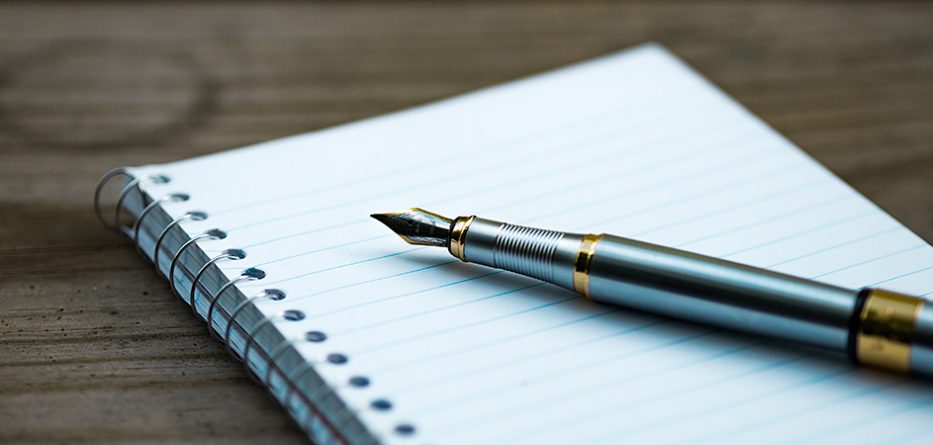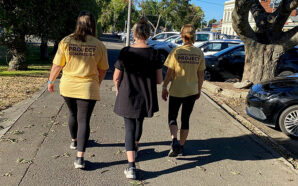As Christians, we are called to steward God’s gifts gratefully, share them generously, and return them with increase.
Making your Will enables you to safeguard your life’s work and the blessings God has given and support your values, loved ones, and causes close to your heart beyond your lifetime.
During Include a Charity Week, which runs from 7 to 13 September, Bernard McAuley of McAuley Hawach Lawyers spoke to Catholic Outlook to answer some frequently asked questions around Estate Planning and Making a Will.
Catholic Outlook: What is a Will and why should everybody have a will?
 Bernard McAuley: Essentially, a Will is a legal document that sets forth your wishes regarding the distribution of your property and the care of any minor children.
Bernard McAuley: Essentially, a Will is a legal document that sets forth your wishes regarding the distribution of your property and the care of any minor children.
There are many reasons why everyone should have a Will. The most important being that you have a say over how your assets are distributed on your passing. Many people think that once you die, your estate automatically goes to your family, but this is not necessarily the case. If you do not have a Will, your estate may be distributed in a way that you did not intend.
Other reasons are:
- You can control who is to be your executor. Your executor is the person who controls your affairs when you die.
- If you have children under 18 years, you can appoint a guardian.
- You can leave items to particular people or charity.
- You can minimise the risk of a claim against your estate by having a well-prepared Will.
- You can minimise tax for your beneficiaries.
- You can say whether you wish to be buried or cremated. You can also say things like whether you wish to have a funeral.
- Your estate will not have to incur the time and expense of making a more complicated application to the Court where someone does not leave a Will.
CO: Do all of your assets automatically go to your family once you die?
BM: Not necessarily and it depends on the circumstances.
If no Will is found, it is usually presumed the deceased died ‘intestate’, that is, without a Will.
Chapter 4 of the Succession Act 2006 (NSW) sets out the order in which your eligible relatives will inherit your estate if you die without a will. It is only if you die without eligible relatives that your estate will pass to the State.
It is always better to make a Will as you can choose who will inherit your estate, rather than having the intestacy rules apply. You can choose to benefit your favourite charity, a friend or a remote relative who may not be included under the intestacy rules.
You Will also saves your family and loved ones a great deal of administrative work, anxiety and pain if you have left a clear Will, rather than making them go through the process of establishing themselves as eligible relatives.
CO: Is making your Will a complex process?
BM: There are many legal requirements for a Will. It is one of the most important legal documents that will be drafted in your life.
A poorly drafted Will can have disastrous consequences. The validity of the Will could be contested in court and the intentions of the deceased not respected.
This can lead to your estate being diminished in value due to legal costs.
CO: How do I make sure that my Will is valid? How can I get it prepared correctly?
BM: It also highly recommended that you speak to a lawyer about drafting your Will. A lawyer should not charge too much for a Will. By having a properly prepared Will you are saving yourself and your beneficiaries.
CO: What are some common misconceptions about preparing and finalising a Will?
BM: A misconception I commonly hear is ‘when I die, my spouse gets the whole of my estate anyway so I don’t need a Will.’
Whilst a spouse generally does inherit the whole of the estate, having a Will drafted makes that process significantly easier and cheaper in the long run.
If you have a blended family and children from a previous relationship, it is extremely important to seek legal advice and have a Will in place as your spouse and your children have certain competing rights that need to be properly addressed.
I see other misconceptions from clients who come to me assuming a ‘DIY Kit’ is enough as they consider their affairs to be very simple.
However, I frequently see so-called ‘DIY Will Kits’ not completed and signed correctly. Unfortunately, if you use a DIY Kit, often you do not know that there is a problem with the Will until you die when it is too late to fix it.
CO: What is a Power of Attorney and Enduring Guardian?
BM: A Power of Attorney is a legal document that allows you to appoint a person to make decisions about your property or financial affairs. It is very important that everyone should have a Power of Attorney, should one become incapacitated and be unable to manage one’s affairs.
If you lose mental capacity, without an enduring Power of Attorney in place, there may be no one with the legal authority to manage your financial affairs. Your family would then need to apply to the relevant authority in your State or Territory to have someone appointed.
Similarly, everyone should consider appointing an Enduring Guardian. An Enduring Guardian can make personal, health or lifestyle decisions on your behalf, in the event that you are no longer physically or mentally capable of making those decisions yourself.
CO: What happens if I die without a Will?
BM: If you die without a Will, it is usually presumed that you have died ‘intestate’, that is, without a Will.
Applying for distribution of an estate where the deceased has died intestate, is generally always more costly and there is a significant delay.
CO: What kind of gifts can you leave in your Will?
BM: You can leave a specific gift, such as your jewels or particular shares for example. You can leave pecuniary gifts such as a specific sum of money for example. You can also leave residuary gifts, that is, you leave whatever is left in the estate after any specific or pecuniary gifts have been made from the estate and all expenses and taxes have been paid. Often, people choose to make a residuary gift to their Church or a charity which is close to their heart and faith as part of their enduring legacy.
CO: If I wanted to leave money to a charity or church after I die, what do I need to do?
BM: You should make sure that you are donating to a reputable charity and that you have the charity details correctly specified in the Will to avoid any dispute. This is something you should speak to your lawyer about.
CO: In your experience, how have you seen a gift in Wills positively impact a charity or church after a person’s passing?
BM: Churches and charities survive on the generosity of individuals leaving bequests in their Wills.
Without bequests, the work of Saints such as St Teresa of Ávila who was provided with bequests to establish various convents in Spain, and Catherine McAuley, who used a bequest left to her in 1822 to found the Sisters of Mercy, would not have been possible.
CO: How can I avoid common traps and misconceptions of estate planning such as jointly held property and superannuation?
BM: This is something you should obtain legal advice with respect to. A Will is not an ‘estate plan’ and you should ensure that beneficiaries are appropriately appointed in your superannuation and other insurance policies.
If for example, you own property as a joint tenant with others, then this will not form part of the estate.
CO: How often should my Will be revised or updated?
BM: I recommend that your Will be revised or updated where there has been a significant increase or decrease of assets or liabilities in your estate, creation of any new business structures including companies, family trusts, unit trusts or superannuation, a death in the family, divorce, or disablement of any person mentioned in the Will.
CO: Once a Will has been finalised, can it be challenged?
BM: Absolutely. There are many avenues in which your Will can be challenged.
The main ways of challenging a Will are to allege undue influence, fraud, forgery, lack of testamentary capacity and/or bring an application under the Succession Act.
A beneficiary may bring a claim to vary a Will claiming that adequate provision has not been made to a beneficiary.
Unfortunately, this is an area of increased litigation which reinforces the need to obtain legal advice regarding your Will as a well-prepared Will saves you and your beneficiaries.
CO: If you have a Will and want to change it, what is the best way to do this?
BM: I recommend that you speak to a lawyer if you have any concerns about your Will. Planning your Will safeguards your life’s work and provides peace of mind.
A Gifts in Wills ABC’s of legal terms can be downloaded here.
To learn how an effective Will can reduce your risk of exposure and provide your loved ones with security and peace of mind, McAuley Hawach Lawyers are hosting a free online seminar on Wednesday 16 September at 5.30pm. This informative seminar will provide the opportunity for Q&A.
Register today by visiting https://tinyurl.com/giftsinwillsDOPseminar
For information on giving a gift in Will to the Catholic Church and your faith community visit yourcatholicfoundation.org.au/giftsinwills








